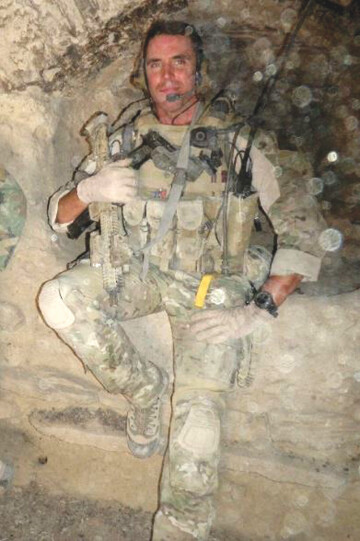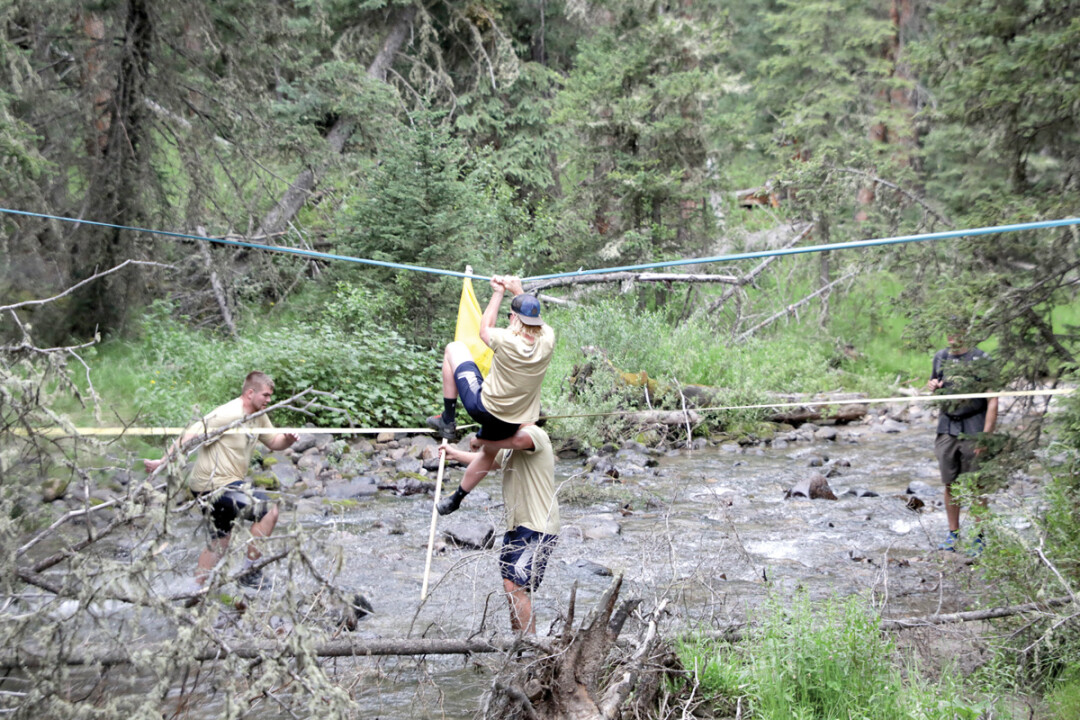Know Yourself Lead Yourself Lead Others
A Retired Green Beret’s Philosophy on Effective Leadership
Mia Snyder | Sunday Mar. 1st, 2020
Who was the best leader you’ve ever followed? Who was the worst? How has leadership shaped or changed your life?
I took a moment to ponder my own answers to these questions as I sat down with Phil Kornachuk to discuss leadership training and how he has recently implemented it in his upcoming programs for LEAD 406, a leadership training organization. Kornachuk is not unfamiliar to leadership training, quite the contrary. Leadership has not only shaped and changed his life, it has become his life. While he began his 22-year long career in the military as a Canadian high school dropout, he finished as a trained expert in one of the most elite forces in the United States military. When Kornachuk moved to Bozeman with his wife and eight children, he retired from the US Army and decided to use his unique knowledge and experience to develop a curriculum for participants from all backgrounds who have a desire to better themselves and those around them.
Kornachuk began his career, as mentioned, enlisted in the Canadian Army. Following, he enlisted in the United States Army as an infantryman and later coined the nickname Phil “Canuck” Kornachuk after the Vancouver Canucks. After his service in the infantry, Kornachuk attended Gonzaga University where he met his wife, Tana, and gained an undergraduate degree in Biology. There, he made the transition from Canadian and United States enlisted soldier to a commissioned Second Lieutenant, and a leader to the type of soldiers who had previously been his peers.
Throughout his career as an Army Officer, Kornachuk earned the opportunity to serve in units such as the 2nd Ranger Battalion, serve as a Green Beret in the 1st Special Forces Group out of Joint Base Lewis McChord in Washington state, and other highly-qualified organizations within the United States Army Special Operations Command. In order to successfully accomplish his job as not only a soldier but a leader within these units, Kornachuk was required to undergo rigorous training that challenged him physically and mentally in ways that he had never seen before.
We discussed this type of leadership training in depth, as it was the basis of Kornachuk’s inspiration for LEAD 406. While he believes that there is a certain amount of knowledge that can be gained from academic, classroom-style learning, he attested that the best leadership skills develop from experience. His training for elite level military organizations capitalized on experientially based leadership. Kornachuk’s unit had to be prepared to face situations that were completely foreign, some of which even the United States had never seen before. In order to juggle a constantly evolving social, political, and even geographical environment, Kornachuk and his peers needed to train in similar environments.
Thus, Kornachuk and his fellow team members underwent training that involved a variety of evolving circumstances, many of which they had never seen before and were required to find a solution to on a limited timeline. As Kornachuk described these experiences to me, he reflected on the power of both successes and failures. While success is good for the morale of the team, he maintained that they often learned more from their failures. Regardless, the team moved forward with their new knowledge learned from both success and failure, hopefully to do better the next time.
However, while these exercises were important, Kornachuk claimed that much of the power of the team was in individual development. This concept is embodied in his philosophy: know yourself, lead yourself, and then lead others.When leading others is the end goal, it is even more vital to be a person who is likeable, trustworthy, and authentic, qualities that must be developed in the individual.
This philosophy is directly reflected in the programs at LEAD 406. Generally, the programs at LEAD 406 follow a five-phase process, beginning with what Kornachuk refers to as “Deliberate Pre-work” in which participants are encouraged to consider their values, strengths, and their own leadership philosophy, often in solitude. The next phase provides classroom-based learning on leadership styles, vision, planning, communication and culture. Then, participants get their hands dirty and exercise these newly learned skills in a small team where they rotate leadership and solve ambiguous problems in a physically and mentally challenging environment. Finally, in the last two phases, teams and individuals will reflect, give and receive constructive feedback, and discuss how the experience applies to their specific field or fields.
The Montana State University athletics teams have recently gotten the most experience with Kornachuk’s leadership programs and seminars. The MSU Football team has participated in several of these programs and seminars with Kornachuk over the last three years. Last August, the team kicked off its summer training with a day of physical and mental challenges up in the woods of Gallatin Canyon. Prior to the outdoor segment of the training, the team was required to complete Kornachuk’s “pre-work.” For the football team, this meant reflecting on good and bad leadership, establishing team culture and values, and creating team and group goals. Summer Camp training involved all players, from incoming freshmen to heavily seasoned seniors. In order to operate cohesively and hopefully achieve hard-earned wins, the team needed to bond together and create not only a solid foundation of physical skills and gameplay, but one of trust and camaraderie.
The 2019 MSU Football team went on to win eleven out of their fifteen regular season games, including a fourth consecutive win in The Brawl of the Wild, the rivalry game between the Montana State Bobcats and the Montana Grizzlies. This is Montana State’s best record in 35 years. While Kornachuk abstained from taking credit for the successes of the football team, Head Coach Jeffrey Choate and the players themselves were none too quiet about their appreciation for LEAD 406 and its programs.
According to Choate, “We have engaged with Phil and Lead 406 over the last three years to help us strengthen our culture and develop value-based leaders. He and his team hit a home run every time. Be it brief leadership seminars or multi-day team building activities, Lead 406 delivers!”
The players valued the leadership training so much that they insisted that it become an established part of their Summer Camp. This upcoming August 5-6, 2020, the MSU Football Team will again participate in LEAD 406’s program focused on facilitating the development of culture, cohesion and leadership, this time a multi-day course in Paradise Valley, MT. Like that of the course in August 2019, this program will involve physical challenges such as carrying 200-pound dummies, white-water rafting, and axe throwing, while incorporating rotational leadership so that the team is required to accommodate for constantly changing circumstances, much like that of Kornachuk’s training as a Green Beret.
As I reflected back on these questions, “Who was the best leader you’ve ever followed? Who was the worst? How has leadership shaped or changed your life?” I could not help but think of the numerous experiences in which Kornachuk’s philosophy, “Know yourself, lead yourself, lead others,” has been relevant in my own life. From everyday conversations with friends to decisions that have had a more substantial impact on my schooling and future career, I have been constantly challenged to discover my own values and implement them in my life, whether I realized it or not. This philosophy is not only relevant for members of elite organizations within the United States military, but for every person who wants to better themselves and serve those around them.
In the future, Kornachuk intends to hold leadership training events and expeditions for participants of all backgrounds. While there is a pre-established format for the majority of the programs at LEAD 406, Kornachuk modifies each individual program to best accommodate its participants. On March 23-24, LEAD 406 will hold a Core Leadership Program specifically designed for Non-Profit leaders within the Bozeman community. Kornachuk hopes to use this event as a way to give back to some of the members in these organizations who graciously spend their own time and energy giving back to the community.
More information about the leadership training opportunities through LEAD 406 can be found on the organization’s Facebook page and website or by contacting Phil Kornachuk by phone at 360-481-1360.
| Tweet |
